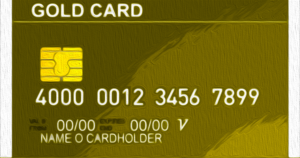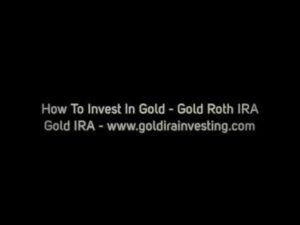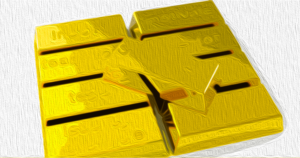
Bitcoin Price Fluctuations Reflect Mercurial Nature
As the decision for the spot bitcoin exchange-traded fund (ETF) looms near, bitcoin's price fluctuations embody its unpredictable and volatile nature. The price of bitcoin reached a peak of $45,922, with intraday values ranging from $43,920 to $44,067.
Bitcoin's Vibrant Market Environment
In the realm of crypto trading, bitcoin's activity ranged from $43,116 to $45,922, indicating a vibrant market environment. With a substantial trade volume of $32.79 billion and a market capitalization of $857 billion, bitcoin holds a significant position in the crypto economy. The recent fluctuations highlight the ongoing battle between buyers and sellers within the market.
Oscillators and Market Sentiment
Oscillators provide insights into bitcoin's strength and potential shifts in value. The relative strength index (RSI) stands at 55, and the commodity channel index (CCI) at 48, indicating a balanced force between buyers and sellers. The momentum at 1,273 leans towards bullishness, while the moving average convergence/divergence (MACD) at 660 suggests a bearish outlook, reflecting mixed sentiment among traders.
Consistently Bullish Moving Averages
The moving averages (MAs) for bitcoin across different time periods, from a brief 10-day to an extended 200-day, both exponential (EMA) and simple (SMA), depict a consistently bullish trend. This coherence across various timeframes suggests a strong underlying bullish current, indicating sustained interest in buying and an optimistic future perspective.
Volatility and Indecision on the Daily Chart
Bitcoin's daily chart reveals a market characterized by volatility and indecision, with fluctuating prices. Long wicks on candles indicate resistance at various price points, signaling indecision among traders. A cautious entry strategy would involve waiting for a solid break and closing above $45,922, while a fall below $39,304 could indicate a bearish retreat.
Bearish Trend on the 4-Hour Chart
Zooming in on the 4-hour chart, a bearish trend is evident, with successive lower highs and lows. A significant drop followed by minor recoveries suggests a potential slowdown or retraction in this downward movement. On the other hand, the hourly chart shows bitcoin's erratic lateral movements, with a slight inclination towards bearishness, particularly notable after the large drop on Jan. 2.
Bullish and Bearish Verdicts
Bull Verdict: Despite market uncertainties and mixed indicators, the collective bullish signals from all moving averages suggest a positive trend. If the price of bitcoin remains above key support levels and continues to create higher lows, it could indicate an imminent upward surge.
Bear Verdict: However, the bearish outlook should not be ignored, with signals like the MACD highlighting negativity and the 4-hour chart showing a short-term decline. If bitcoin fails to surpass critical resistance levels and continues to create lower highs, it could suggest diminishing momentum and a possible descent.
Register your email here to receive weekly price analysis updates.
What are your thoughts on bitcoin's market action on Friday? Share your opinions in the comments section below.
Frequently Asked Questions
Is gold buying a good retirement option?
Although buying gold as an investment might not sound appealing at first, when you look at the average annual gold consumption worldwide, it is worth looking into.
The best form of investing is physical bullion, which is the most widely used. You can also invest in gold in other ways. It's best to thoroughly research all options before you make a decision.
If you don't want to keep your wealth safe, buying shares in companies that extract gold and mining equipment could be a better choice. If you are looking for cash flow from your investment, buying gold stocks will work well.
ETFs allow you to invest in exchange-traded funds. These funds give you exposure, but not actual gold, by investing in gold-related securities. These ETFs usually include stocks of precious metals refiners or gold miners.
Can I keep physical gold in an IRA?
Not only is gold paper currency, but it's also money. Gold is an asset people have used for thousands years as a place to store value and protect their wealth from economic uncertainty and inflation. Gold is a part of a diversified portfolio that investors can use to protect their wealth from financial uncertainty.
Today, Americans prefer precious metals like silver and gold to stocks and bonds. Although owning gold does not guarantee that you will make money investing in it, there are many reasons to consider adding gold into your retirement portfolio.
One reason is that gold historically performs better than other assets during financial panics. Between August 2011 to early 2013, gold prices rose close to 100 percent while the S&P 500 fell 21 per cent. Gold was one asset that outperformed stocks in turbulent market conditions.
The best thing about gold investing is the fact that there's virtually no counterparty risk. Your shares will still be yours even if your stock portfolio drops. However, if you have gold, your value will rise even if the company that you invested in defaults on its loans.
Gold provides liquidity. This means that you can sell gold anytime, regardless of whether or not another buyer is available. Gold is liquid and therefore it makes sense to purchase small amounts. This allows you take advantage of the short-term fluctuations that occur in the gold markets.
Who holds the gold in a gold IRA?
The IRS considers gold owned by an individual to be “a type of money” and is subject taxation.
This tax-free status is only available to those who have owned at least $10,000 of gold and have kept it for at minimum five years.
Owning gold can also help protect against inflation and price volatility, but it doesn't make sense to hold gold if you're not going to use it.
If you plan to eventually sell the gold, you'll need a report on its value. This could impact the amount of capital gains taxes your owe if you cash in your investments.
You should consult a financial planner or accountant to see what options are available to you.
Can the government take your gold
The government cannot take your gold because you own it. It's yours, and you earned it by working hard. It belongs exclusively to you. But, this rule is not universal. You could lose your gold if convicted of fraud against a federal government agency. If you owe taxes, your precious metals could be taken away. However, even if taxes are not paid, gold is still your property.
What is the value of a gold IRA
The benefits of a gold IRA are many. It's an investment vehicle that allows you to diversify your portfolio. You can control how much money is deposited into each account as well as when it's withdrawn.
You have the option of rolling over funds from other retirement account into a gold IRA. This allows you to easily transition if your retirement is early.
The best part about gold IRAs? You don't have to be an expert. They're readily available at almost all banks and brokerage firms. You don't have to worry about penalties or fees when withdrawing money.
However, there are still some drawbacks. Gold has historically been volatile. Understanding why you want to invest in gold is essential. Are you looking for growth or safety? Do you want to use it as an insurance strategy or for long-term growth? Only once you know, that will you be able to make an informed decision.
If you plan on keeping your gold IRA alive for a while, you may want to consider purchasing more than 1 ounce of pure gold. A single ounce isn't enough to cover all of your needs. You may need several ounces, depending on what you intend to do with your precious gold.
You don't need to have a lot of gold if you are selling it. You can even manage with one ounce. But, those funds will not allow you to buy anything.
How does a gold IRA work?
The Gold Ira Accounts are tax-free investment options for those who want to make investments in precious metals.
You can purchase physical gold bullion coins anytime. To start investing in gold, it doesn't matter if you are retired.
You can keep gold in an IRA forever. Your gold assets will not be subjected tax upon your death.
Your gold is passed to your heirs without capital gains tax. Your gold is not part of your estate and you don't have to include it in the final estate report.
You'll first have to set up an individual retirement account (IRA) to open a gold IRA. Once you've completed this step, an IRA administrator will be appointed to your account. This company acts like a middleman between the IRS and you.
Your gold IRA custody will take care of the paperwork and send the forms to IRS. This includes filing annual reports.
Once you've set up your gold IRA, it's possible to buy gold bullion. Minimum deposit required is $1,000 You'll get a higher rate of interest if you deposit more.
You will pay taxes when you withdraw your gold from your IRA. You'll have to pay income taxes and a 10% penalty if you withdraw the entire amount.
A small percentage may mean that you don't have to pay taxes. There are exceptions. You'll owe federal income tax and a 20% penalty if you take out more than 30% of your total IRA assets.
Avoid taking out more that 50% of your total IRA assets each year. Otherwise, you'll face steep financial consequences.
What are some of the benefits of a gold IRA
The best way to invest money for retirement is by putting it into an Individual Retirement Account (IRA). You can withdraw it at any time, but it is tax-deferred. You can decide how much money you withdraw each year. And there are many different types of IRAs. Some are better suited to college savings. Some are better suited for investors who want higher returns. Roth IRAs let individuals contribute after age 591/2 and pay tax on any earnings at retirement. Once they start withdrawing money, however, the earnings aren’t subject to tax again. So if you're planning to retire early, this type of account may make sense.
Because it allows you money to be invested in multiple asset classes, a ‘gold IRA' is similar to any other IRAs. Unlike a regular IRA, you don't have to worry about paying taxes on your gains while you wait to access them. People who want to invest their money rather than spend it make gold IRA accounts a great option.
Another benefit to owning IRA gold is the ability to withdraw automatically. This eliminates the need to constantly make deposits. To avoid missing a payment, direct debits can be set up.
Finally, gold remains one of the best investment options today. Its value is stable because it's not tied with any one country. Even in economic turmoil, gold prices tends to remain relatively stable. It is therefore a great choice for protecting your savings against inflation.
Statistics
- Gold is considered a collectible, and profits from a sale are taxed at a maximum rate of 28 percent. (aarp.org)
- (Basically, if your GDP grows by 2%, you need miners to dig 2% more gold out of the ground every year to keep prices steady.) (smartasset.com)
- You can only purchase gold bars at least 99.5% purity. (forbes.com)
- If you take distributions before hitting 59.5, you'll owe a 10% penalty on the amount withdrawn. (lendedu.com)
- Indeed, several financial advisers interviewed for this article suggest you invest 5 to 15 percent of your portfolio in gold, just in case. (aarp.org)
External Links
bbb.org
forbes.com
investopedia.com
irs.gov
How To
The best place to buy silver or gold online
Before you can buy gold, it is important to understand its workings. It is a precious metal that is very similar to platinum. Because of its resistance to corrosion and durability, it is very rare. It is difficult to use so people prefer to buy jewelry made from it to gold bars.
Two types of gold coins are available today: the legal tender type and the bullion type. Legal tender coins are minted for circulation in a country and usually include denominations like $1, $5, $10, etc.
Bullion coin are not intended for investment. However, their value will increase with inflation.
They can't be exchanged in currency exchange systems. One example is that if someone buys $100 worth gold, they get 100 grams with a $100 value. The buyer receives 1 gram of gold for every dollar spent.
Next, you need to find out where to buy gold. If you want to purchase gold directly from a dealer, then a few options are available. First, you can visit your local coin store. Another option is to go through a reputable site like eBay. You may also be interested in buying gold through private sellers online.
Private sellers are individuals who offer to sell gold at retail or wholesale prices. Private sellers typically charge 10% to 15% commission on each transaction. A private seller will usually return less money than a coin shop and eBay. This option is often a great one for investors in gold, as it gives you greater control over the item's value.
Another option for buying gold is to invest in physical gold. While physical gold is easier than paper certificates to store, you still need to make sure it is safe. Physical gold should be stored in an impenetrable container, such a vault and safety deposit box to ensure its safety.
You can either visit a bank, pawnshop or bank to buy gold. A bank can provide you with a loan to cover the amount you wish to invest in gold. Pawnshops are small establishments allowing customers to borrow money against items they bring. Banks tend to charge higher interest rates, while pawnshops are typically lower.
Finally, another way to buy gold is to simply ask someone else to do it! Selling gold is also easy. Set up a simple account with GoldMoney.com and you will start receiving payments instantly.
—————————————————————————————————————————————————————————————-
By: Jamie Redman
Title: Bitcoin Technical Analysis: BTC Consolidates Amid Uncertainty Tied to the ETF Decision
Sourced From: news.bitcoin.com/bitcoin-technical-analysis-btc-consolidates-amid-uncertainty-tied-to-the-etf-decision/
Published Date: Fri, 05 Jan 2024 14:45:45 +0000
















